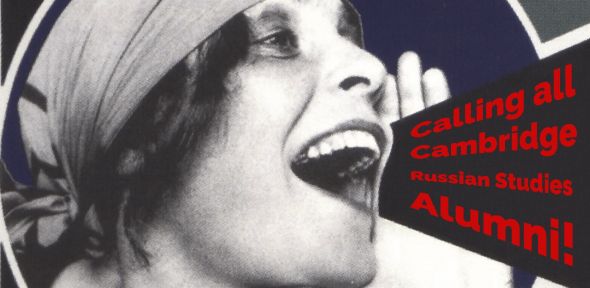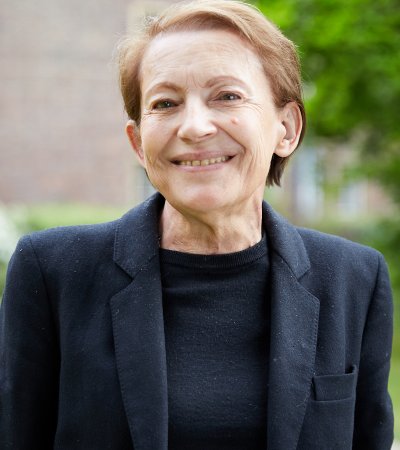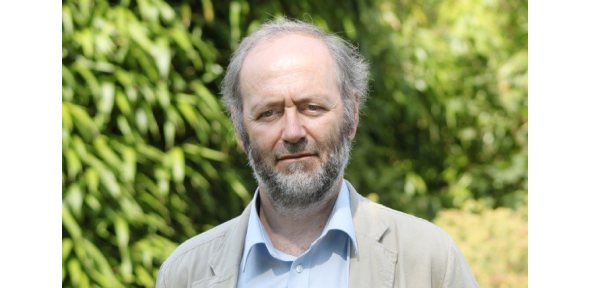
Message from Professor Emma Widdis. Chair of Slavonic Studies.
As I hand over to Stanley Bill as Director for Slavonic from this October, I wanted to write to our alumni and friends.
For Cambridge students of in Slavonic Studies, as for everyone else, the last two years have been challenging. But our students’ exceptional dedication has been awe-inspiring. Faced with the challenges of lock downs, they continued to work hard, and to make the very most of the rich and dedicated online teaching that our staff have provided. They were engaged, dynamic and resilient. Many of them even managed to find inventive ways to spend their year abroad in Russia, at a time when travel seemed impossible. We feel that such resourcefulness and commitment is one of the most striking things about students of Russian. It may be born from the duress of intensive grammar in that first year, but it transforms into something rich and sustaining in the course of four years! And it extends into a broader commitment to Slavonic Studies, which we can nurture and develop through our rich and diverse courses in Russian, Ukrainian and Polish.
In the Spring of this year, we had the great sadness of losing our longstanding, much loved, language teacher, Natasha Franklin this year. Natasha, of course, was responsible for nurturing that famous resilience in our students (and their grammar!) over three decades. Her untimely death brought a wealth of memories from alumni, past and present. You can read some of them here. https://www.mmll.cam.ac.uk/news/natasha-franklin-memoriam. We plan to hold a memorial service for Natasha in Sidney Sussex on November 14th 2021 at 2pm. We are also establishing a fund in her name, dedicated to the support of Russian language teaching and learning. We would like to build up funds to provide full financial support for all our students during their year abroad – and, ultimately, to increase our staff provision to enable even stronger language teaching throughout the course.

There is much to be glad about in Slavonic Studies in Cambridge. At a time when enrolments in languages across the UK are dropping, our own student numbers continue to be buoyant (with forty students joining us in the first year this October). You don’t need us to tell you that there is an ever-increasing need for the UK to produce generations of graduates who have not only exceptional fluency in Russian – but also the depth of cultural and historical knowledge that this degree provides, and which enables a more nuanced understanding of Russia today. We are very proud to be offering that kind of exceptional training.
There are other changes in our Section. Ksenia Zanon joined us in 2019 (just before the onset of the pandemic), to replace Kylie Richardson as our specialist in Slavonic linguistics. Anna Berman (formerly at McGill University in Montreal) joins us this year as our expert in nineteenth century Russian literature. Anna’s forthcoming book, to be published by Oxford University Press, is The Family Novel: Russia and England, 1800-1880. We will also be joined this Autumn by Catriona Kelly, who has been elected as Honorary Professor and Senior Research Fellow in Trinity College.
After a long and exceptionally rich career in Cambridge, Simon Franklin has retired from the Established Chair in Slavonic Studies. Holder of the Russian Lomonosov medal and Fellow of the British Academy, Simon has been an immensely distinguished holder of the Established Chair. His latest prizewinning book, The Russian Graphosphere 1450-1850 (Cambridge, 2019), has been described ‘a rare book that opens eyes and reveals new vistas for thought, imagination, and scholarship…as electrifying in its novelty as it is dazzling in its erudition.’ We are delighted that Simon continue to be closely linked to the Section as an Emeritus Professor and Fellow of Clare College. Together with Rebecca Reich and myself, he is currently editing a major new Cambridge History of Russian Literature.
Simon’s expertise in the culture of pre-modern East Slavic culture is replaced for us in Cambridge by that of Olenka Pevny, who is a specialist in the visual culture of Kyivan Rus and Ruthenia. We will also be appointing a new colleague in the coming year, and we will seek a leading specialist in contemporary Russian cultural studies. Our new comparative undergraduate course, Cultural Histories of the Present, will draw on our expertise in Polish, Ukrainian and Russian, to offer our students the opportunity to focus on contemporary culture and society.

We approach the coming academic year with the hope of a return to some kind of normality. Although I am handing over to Stanley as Director, I’m delighted to be taking up the Established Chair in Slavonic. Together we are all excited by the future of Slavonic Studies in Cambridge, and by our unique position in the UK in offering deep cultural, historical and linguistic training in Russian, Ukrainian and Polish. We hope to restart our exciting programme of live events across these three areas in the coming year; we will also continue to organise online research talks and to publish online material. If you would like to be informed of our programme, please do email slavonic@mmll.cam.ac.uk.
As stated above, the Memorial Service for Natasha will be at 2pm on November 14th, in the Chapel at Sidney Sussex. Numbers may be limited. Please let us know as soon as possible if you would like to attend, by emailing slavonic@mmll.cam.ac.uk. If you would like to make a donation to the Natasha Franklin Memorial Fund, you can do so here.
I wish you all the very best for the coming year.
Emma Widdis
________________________________________________________________________________________
The task of strengthening the exchange between alumni, students and staff in Russian and Slavonic Studies starts now. It is as easy as these three steps:
1. Attend the memorial service for Natasha Franklin.
Thank you for your support!






